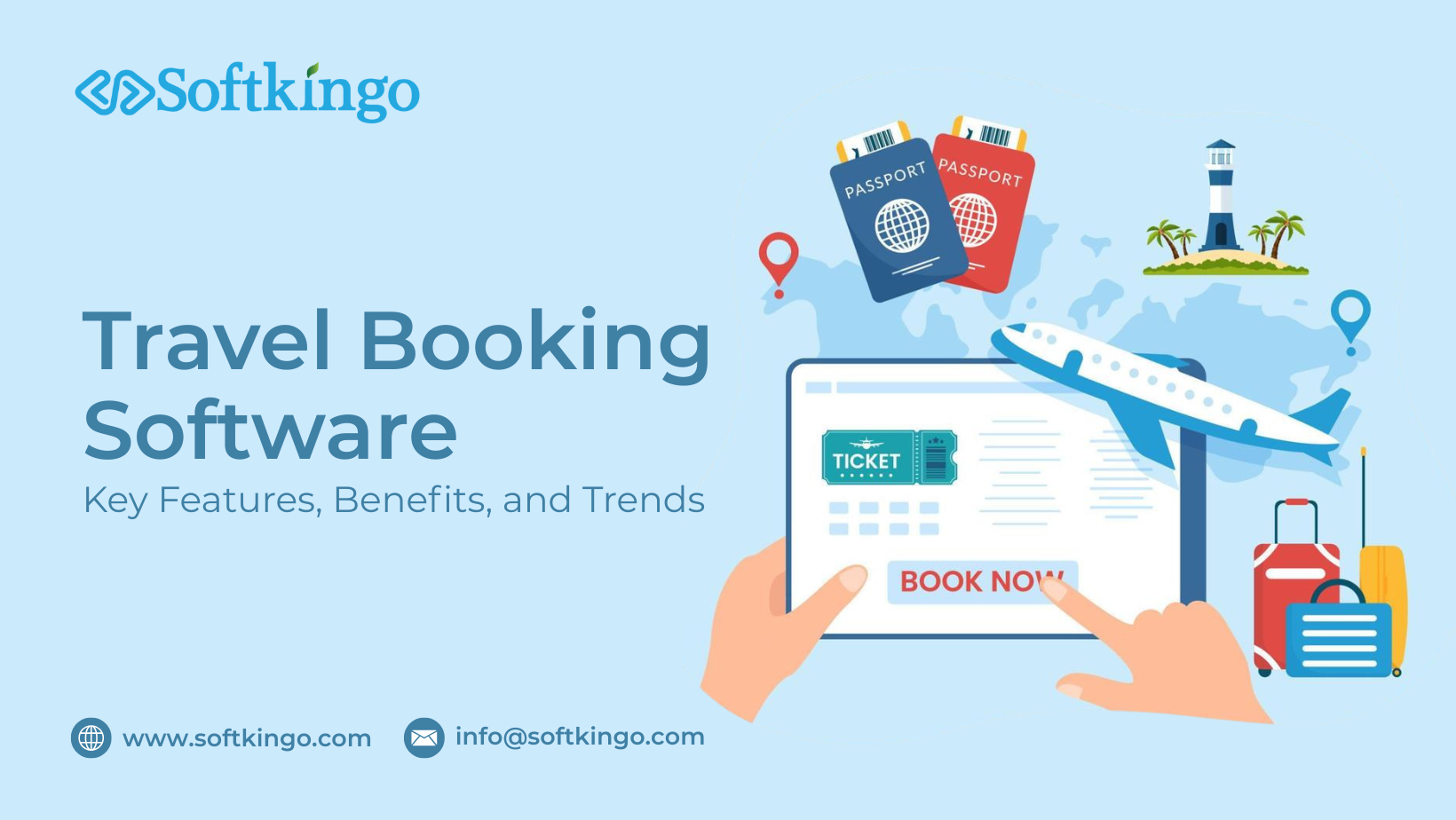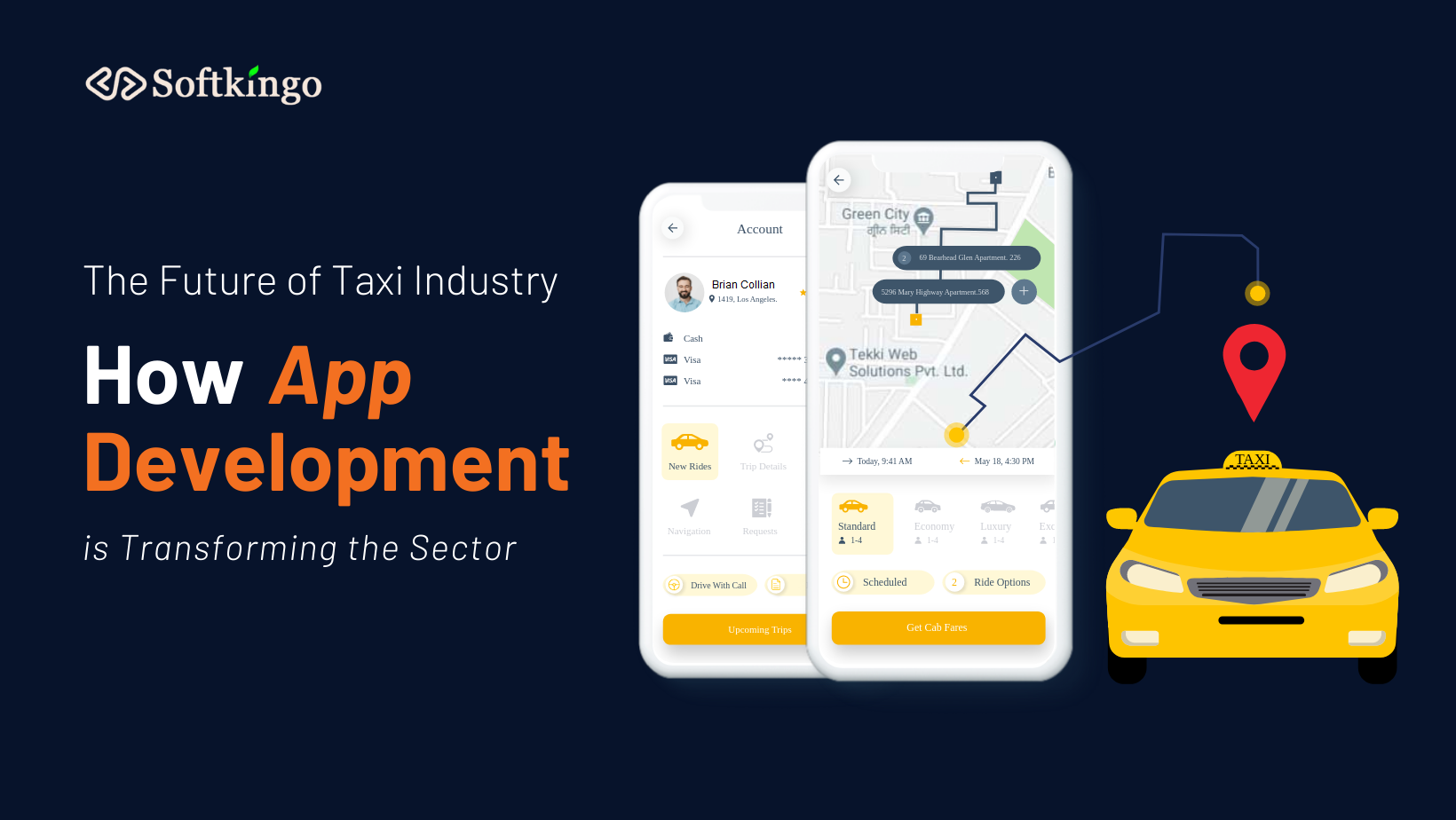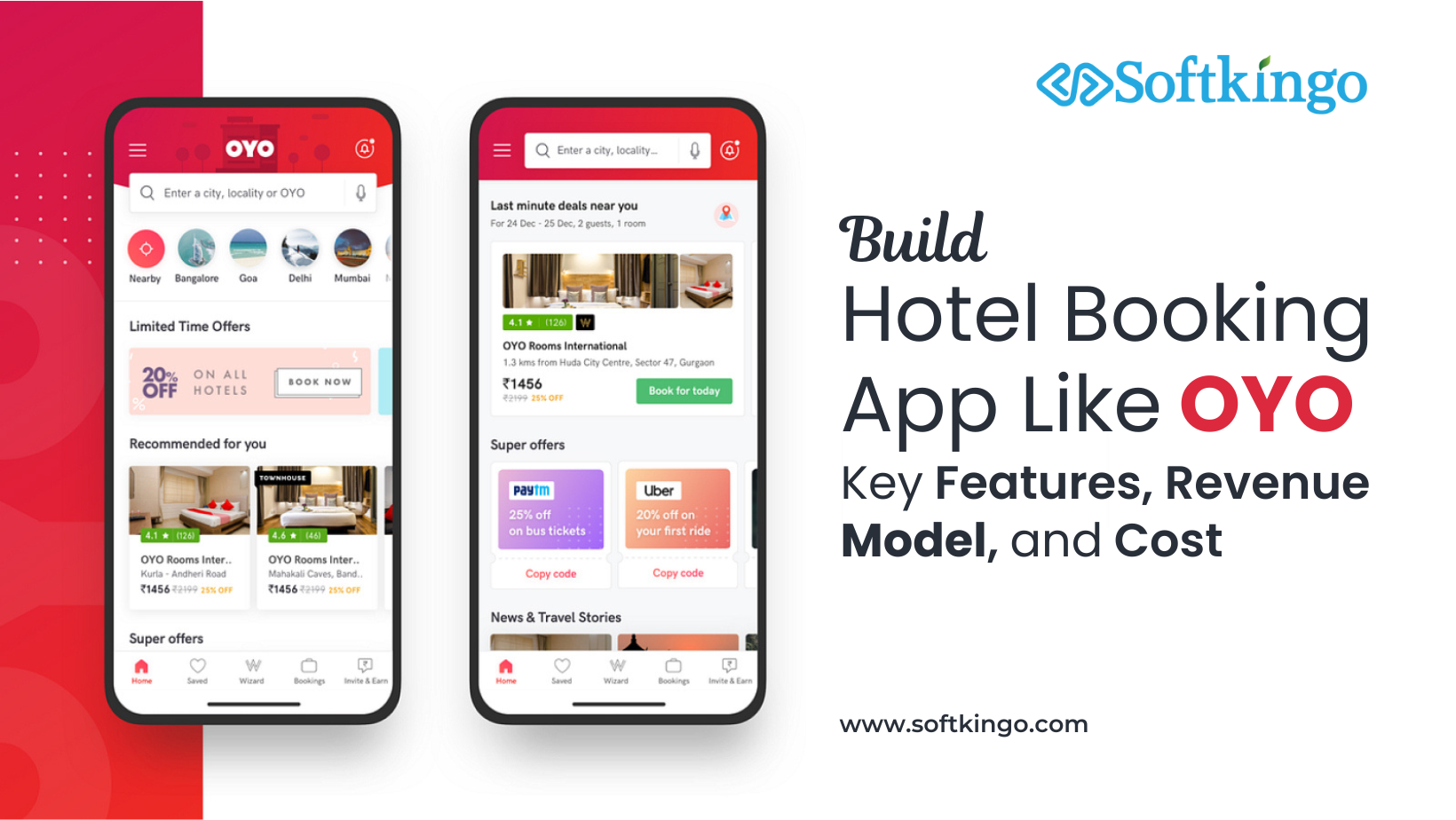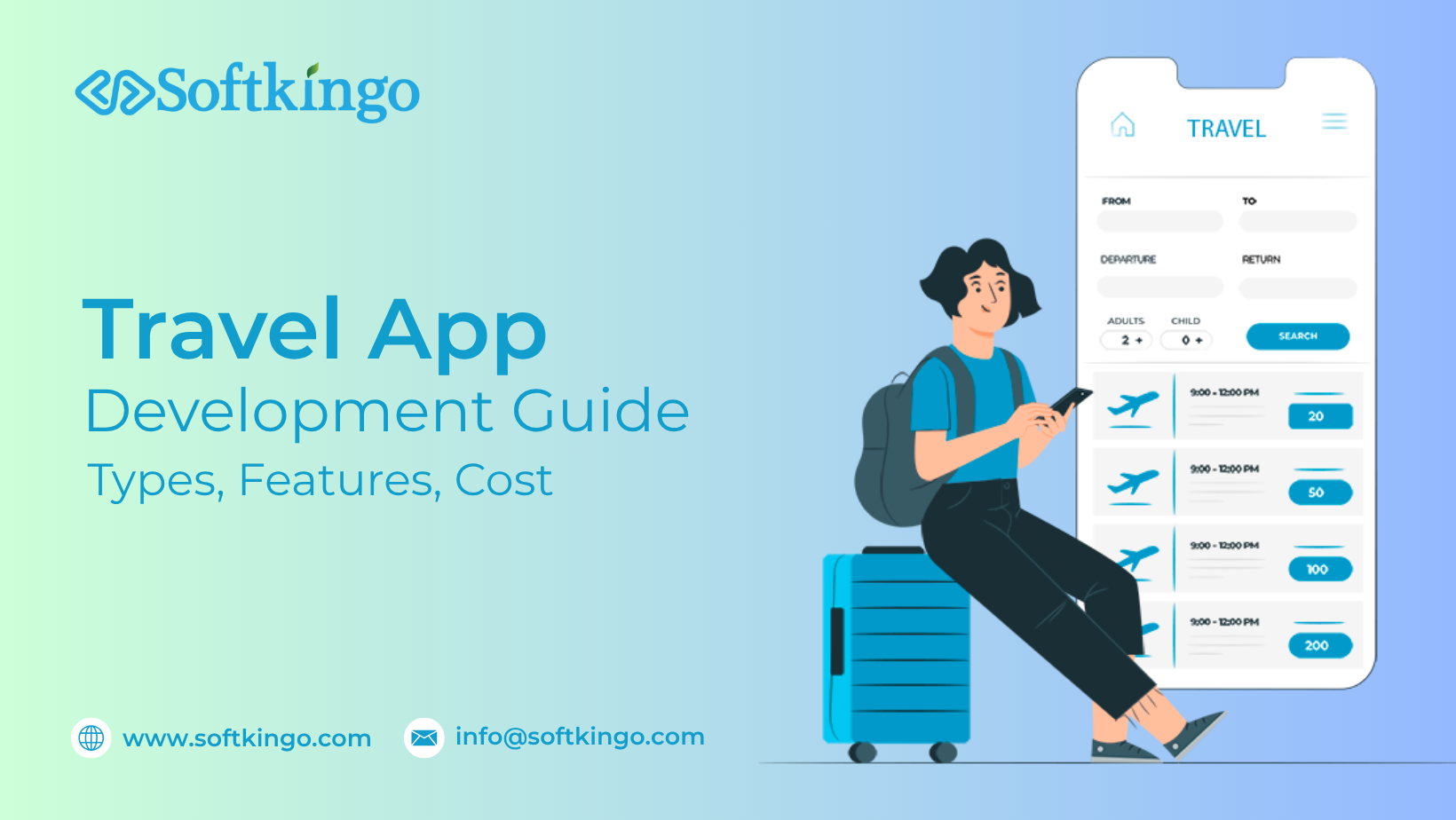Travel Booking Software: Key Features, Benefits, and Trends
Travel isn't just about reaching a destination anymore-it's about the experience. Today, travelers seek more than just a flight or hotel; they want to embark on journeys that feel personalized, effortless, and memorable. That was when came an era of paper tickets and trips to the travel agent. Now, digital innovation unfolds new horizons; it shapes how we plan our sights.
With this shift in expectations, Travel Booking Software has become ever so crucial. It has turned into something that transforms both travelers and travel providers, giving them spent in smoother, smarter, and more personally-tailored travel experiences.
Bringing technology to the travel industry's heart has raised the bar. Now, planning a trip can be as fun and stress-free as the trip itself!
In this article, we will discuss the elements behind the power of travel booking software—how it is changing travel, stirring innovation, and aiding the industry in trends about the ever-changing needs of modern travellers.
What Is Travel Booking Software?
Think of travel booking software as your all-in-one digital travel assistant. It's a powerful tool that takes the stress out of planning a trip—helping travelers book flights, hotels, car rentals, tours, and more, all in one place. Behind the scenes, it handles real-time inventory management so providers can keep track of what’s available and offer the most up-to-date options to customers.
But what really makes this software shine is its design. A smooth, intuitive user experience (UI/UX) ensures that booking a trip is quick, easy, and maybe even a little fun. No frustration, no confusion—just a seamless path from planning to payment.
Why Should You Invest in Travel Booking Software?
It’s more than just a tool—it’s a smart investment that can transform how your travel business operates. Here's why:
Convenience for Your Customers
Today’s travelers expect flexibility. With travel booking software, they can research, book, and manage their entire trip anytime, anywhere—from a laptop at home or a phone on the go. No waiting in line, no phone calls—just convenience at their fingertips.
Boost Sales and Revenue
The right software doesn’t just help you sell—it helps you sell smarter. By offering personalized recommendations like travel insurance, private tours, or seat upgrades, you create more value for the traveler and more opportunities to grow your revenue.
Lower Operational Costs
By automating repetitive tasks—like managing bookings, processing payments, and sending confirmations—you cut down on manual work. That frees up your team to focus on what matters most: creating amazing experiences and building customer relationships.
Reach More Customers Globally
Whether your customers are booking from New York, Tokyo, or Berlin, the software supports multiple languages, currencies, and payment methods. And as your business grows, the system scales with you—handling increased traffic and more bookings without missing a beat.
Better Customer Support
Today’s travelers expect fast, friendly help when they need it. Travel booking software often includes features like live chat, help centers, and self-service tools, so customers can get answers quickly and feel supported every step of the way.
10 Essential Features of Travel Booking Software for Seamless Trips
Great travel booking software stands out due to features that make planning easier for travelers, while providing efficiency to providers. Whether you are developing the software or shopping for one on your own, the following 10 core features must be present:
1. Real-Time Inventory
No traveler should ever book a hotel room or a flight only to be told that it is already taken. Real-time inventory management keeps availability synchronized across multiple platforms, helping to avoid double bookings and unfortunate surprises.
2. Push Notifications
From booking confirmations and flight reminders to last-minute changes, automated systems take the travelers through every step without requiring an unnecessary check-in manual procedure.
3. Personal Prices and Preferences
Intelligent booking software analyses what fits the traveler best according to his preferences, search history, and past trips; whether it involves a beachfront hotel or a preferred airline.
4. Secure Payment Gateways
Trust is everything when it comes to online transactions. Support for multiple currencies and payment methods—with top-quality encryption, of course—instills the highest degree of confidence into travelers.
5. Reporting and Analytics
Great atop the supporting data. Providers can use a real-time stream of information regarding customer behaviors, sales trends, and booking dynamics to improve their services and make strategic business decisions.
6. Dynamic Pricing and Promotions
Why stick to a static price? Dynamic pricing allows service providers to set their prices in real time based on demand, seasonality, or when the bookings are being made. Second, they can offer promotion to increase the bookings.
7. Multichannel Integration
Modern travelers might create their plans on their laptop, look at prices on their phones, and eventually book through some social media channel. Integration of websites, mobile apps, and social networks assures a smooth journey of the users from one channel to another.
8. Multi-Language and Multi-Currency Support
Travelers are truly global nowadays, and by enabling multiple language and currency support, a booking platform can be rendered available to anyone.
9. 24/7 Virtual Assistance
Chatbots and virtual assistants powered by AI can answer common questions, modify bookings, or cancel them-on-demand, whenever no human is available.
10. Advanced Search and Filtering
Get travelers to their search destination fast! Whether they're looking for price, amenity, location, or travel-rated options, advanced search filters make it easy to define what matters.
Types of Travel Booking Software
Travel booking software comes in different shapes and sizes that do all kinds of things in the travel industry. Let's break down these broad types and see what they do:
1. Online Travel Agencies (OTAs)
Think of OTAs like your go-to travel marketplace. Sites like Expedia and Booking.com let travelers browse and book everything from flights and hotels to full vacation packages—all in one place.
2. Global Distribution Systems (GDS)
Behind the scenes, GDS platforms power much of the travel industry. They connect travel agents with real-time data on flights, hotels, and rental cars, acting as a central hub to keep everything running smoothly.
3. Custom Business Solutions
Large agencies or corporate travel departments often need something more tailored. Custom-built platforms help them manage large volumes of bookings and meet specific operational needs.
4. Mobile Travel Apps
For travelers on the move, mobile apps make it easy to book, manage, and update travel plans—often with features like last-minute deals, push notifications, and digital boarding passes.
How Travel Booking Software Is Changing the Industry
Travel booking platforms have completely transformed how we plan and experience travel. Here’s how:
Everything's Gone Digital
Booking a trip no longer means calling a travel agent. With online tools, anyone can plan a journey from their phone or laptop, anywhere in the world.
Stronger Customer Relationships
Personalized offers, loyalty programs, and special discounts help travel brands connect with customers and keep them coming back.
Smarter Decisions with Data
Booking software provides insights into user behavior, travel trends, and spending patterns—helping businesses make data-driven decisions.
Staying Ahead of the Competition
Companies that embrace modern booking systems offer smoother, faster, and more reliable services compared to those stuck with manual processes.
Common Challenges When Implementing Travel Booking Software
While the benefits are clear, implementing travel software isn’t always smooth sailing. Here are a few hurdles:
1. Legacy System Integration
Old systems don’t always play nice with new software. Using middleware and phasing in changes can help avoid disruptions.
2. Security Concerns
Handling sensitive customer data comes with risks. Strong encryption and compliance with data privacy laws (like GDPR and CCPA) are a must.
3. Tech Adoption by Older Users
Not everyone’s a tech whiz. Creating user-friendly designs and offering tutorials can make platforms more accessible to older travelers.
4. Cost of Development
Building and maintaining software can be pricey. Cloud-based solutions offer more flexibility and help reduce long-term costs.
5. Real-Time Vendor Syncing
Keeping pricing and inventory up-to-date across vendors can be tricky. APIs and smart syncing tools are key to avoiding booking issues.
What’s Next? Future Trends in Travel Booking Software
Travel technology keeps evolving—and here’s what’s coming down the road:
AI and Machine Learning
Imagine a booking system that knows what you want before you do. AI is making hyper-personalized travel experiences a reality.
Blockchain for Security
Blockchain technology offers secure, transparent transactions—great for building trust and protecting customer data.
IoT Integration
The Internet of Things connects everything—from your hotel room lights to airport kiosks—creating seamless, smart travel experiences.
Big Data for Personalization
By analyzing past behavior and preferences, booking systems can recommend tailored trips and offers for each individual traveler.
Voice & Chat-Based Bookings
Voice assistants and chatbots are making it easier to plan travel through simple, conversational interactions.
Sustainable Travel Options
More travelers care about their environmental impact. Future software will make it easier to book carbon-neutral flights or eco-friendly stays.
Virtual & Augmented Reality
Want to tour your hotel room before booking? VR and AR are turning travel planning into an immersive experience.
Let Softkingo Help You Stay Ahead
At Softkingo, we don’t just follow trends—we help shape them. Whether you’re building custom travel booking software from the ground up or need help integrating AI, mobile-first features, or secure blockchain tech, we’re here to help.
Let’s build something extraordinary together.
FAQs
What is travel booking software?
It’s a digital platform that helps travelers book flights, hotels, car rentals, and more—all in one place.
How much does it cost to build a travel booking app?
Costs can range anywhere from $30,000 to $800,000, depending on features, platform (web/mobile), and design complexity.
What types of travel booking software are there?
- Online Travel Agencies (OTAs)
- Global Distribution Systems (GDS)
- Custom Business Platforms
- Mobile Travel Apps
What are the must-have features?
Look for:
- Real-time availability
- Secure payments
- Advanced search filters
- Dynamic pricing
- Personalization
- Multi-channel integration
How does it help my business?
It boosts efficiency, improves customer experience, increases bookings, and helps you reach a global audience—all while reducing manual work.
What trends should I watch for?
Keep an eye on:
- AI personalization
- Blockchain security
- IoT connectivity
- Voice/chat booking
- Eco-friendly travel tools
- Virtual and augmented reality
Was this article helpful?
Current mood: Okay
Written by Ansh Raj Singh





